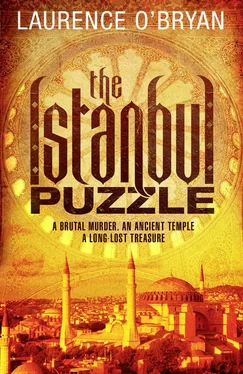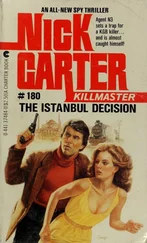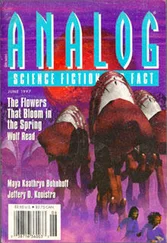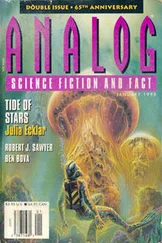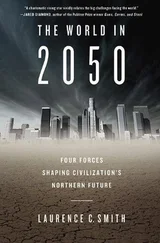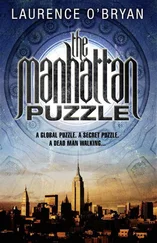‘How complicated do you think taking photos is?’ he’d argued at the time.
I stabbed my fist into the mattress.
What was going to happen?
Beresford-Ellis would lap all this up. His appointment as Director of the Institute last year had been a not-too-subtle attempt to sideline me totally. It wasn’t enough that I was demoted for the stunt I’d pulled in Afghanistan. The other founders of the Institute had demanded I relinquish, temporarily, many of my responsibilities, for my own good.
And I’d agreed, reluctantly. So the last thing I needed now was for one of my new projects to end in disaster.
I shook my head. What happened to me didn’t matter. All that mattered was what had happened to Alek.
He’d been the one I’d talked to when things had gotten too much, when the emptiness had won, when I’d decided I couldn’t go on. I would have never survived without him.
I checked the Foreign Office website, rang their emergency number. As I waited for an answer I thought about how people would react to the news.
Beresford-Ellis had been disdainful about the project in Istanbul from the beginning. When I’d told him we’d won it, he’d said, with his trademark pessimism, ‘I hope you know what you’re doing, Ryan. Isn’t any project like this in a Muslim country a bit too controversial these days? We don’t want a bloody fatwa on our heads.’
‘It’s a small project,’ I’d said. ‘Who gives a damn about someone taking pictures in a museum?’
‘Hagia Sophia may be a museum, Ryan,’ he’d replied. ‘But it was once the supreme mosque ruling the Sunni Islam world, and the seat of the Islamic Caliphate. And before that it was the Orthodox Vatican. There are a lot of toes to be stepped on out there.’
Having made his point, he left our office, sniffing as he passed Alek’s empty desk.
But he was right. Hagia Sophia was important. It had been built when the Byzantine Empire was at its peak in the 7th century and had been dedicated to Holy Wisdom, Sophia, a concept that spanned both the Christian and pre-Christian worlds.
The Orthodox Greeks had lost their Vatican when the all-conquering Ottoman Turks had captured Constantinople and renamed it Istanbul in 1453. In doing so, they’d snuffed out the Byzantine Empire, the direct descendants of ancient Rome.
Sure, fundamentalists were angered when Atatürk had turned Hagia Sophia into a museum in 1934, but their argument was with the Turkish state, not us.
In any case, our project – comparing digital images of mosaics to prints and sketches produced by artists over the centuries – was just about the least invasive thing you could do in a world heritage site. And it was also exactly the type of project our Institute had been set up to do.
A friendly Indian lady finally came on the line. After receiving permission from her superior, she told me about a note on her system from the Istanbul consulate detailing how someone called Alek Zegliwski had indeed been involved in a serious incident in Istanbul. Their contact in relation to the matter was a Mr Fitzgerald. She didn’t have any more information to give me. She couldn’t even tell me Mr Fitzgerald’s first name.
I fell asleep as the first rays of dawn were softening London’s skyline. I’d spent all night thinking about what had happened. One memory had replayed itself over and over in my mind.
The day before he’d flown to Istanbul – only a week earlier – Alek had leaned towards me and whispered,
‘You do know the Devil’s caged under Hagia Sophia, boss? Let’s hope I don’t disturb him, eh?’
I’d laughed. Such superstitions had seemed ridiculous in our shiny glass-walled offices in Oxford.
When I woke, the first thing I did was look for Beresford-Ellis’ number. It was 8:00 AM, but I didn’t care.
Beresford-Ellis was the kind of guy who kept pictures of himself with prominent people on his wall. He had one with David Cameron, another with the chancellor of the university he’d worked in before he came to us, another with Nelson Mandela, and another with the head of the US Geological Service. He was so good at social climbing he could have run PhD-level courses on it. The cherry on top of all that was that he was about as trustworthy as an Afghan warlord with an empty war chest.
When the other founders had decided to take on a qualified manager to lead the Institute, because each of us was immersed in our own projects, I’d said nothing. Irene had died only a month before. Getting Beresford-Ellis in had seemed like a good idea.
I soon found out that his appetite for corporate-speak was prodigious. We didn’t have projects any more, we had ‘collaboration initiatives’ or ‘research value actualisations’. And he’d been subtly critical of every ‘initiative’ I’d worked on since he’d joined. The work we’d done in Bavaria identifying Bronze Age settlements from satellite images hadn’t identified settlements from the target period, he’d said. And our trial security initiative in New York, for a big American bank, hadn’t turned into anything lucrative. All he wanted, it seemed, were projects that got us major contracts quickly.
He was right in his own way, if you disregarded the fact that it took months for the impact of many of our projects to come to light.
These faults weren’t compensated by his demeanour either. He seemed to be uninterested in everyone around him, not just me. Most of the time, it was almost as if his colleagues were invisible to him. What he preferred to do was talk about his own achievements.
‘Bad publicity is the last thing we need right now,’ he said, after I got through to him and told him I was planning to fly out to Istanbul that afternoon. He was good, as always, at finding the down side.
‘If there’s anything in the press about the Institute being involved in something it shouldn’t have been, it’ll be a disaster for our fundraising this year, Ryan. I know this is a bad time to say it, but there are some board members who think we’ve given you too much rope already.’ He waited for a moment for his words to detonate.
What a bastard! Not a single word about Alek’s death. He’d be happy with our scalps on his wall next to those photos.
‘I won’t dodge my responsibilities,’ I said. ‘But I think you should reserve judgement until we know the facts.’ I cut the line.
A few hours later I headed for Heathrow feeling sick, totally unprepared, and unplugged from reality.
It knew it could easily have been me who’d been murdered out there. I could have gone to Istanbul instead of Alek, if I’d insisted on it. And there was more too. If what had happened to Alek had been because of our work in Hagia Sophia, how careful would I need to be?
What was going to happen in Istanbul?
Chapter 5
Malach walked slowly. He turned his head often. The yellow bulbs were barely bright enough to light the sloping brick tunnel in front of him. The polished sheen of his bare head, almost touching the roof, was elongated as if he had been bound at birth.
From his huge hands dangled two canvas bags, the type you see in army surplus stores. Both were empty. When he reached his destination, he put them down beside the tables. He had work to do. The project had delivered what was needed. It was time to tidy up. What had happened in the last few days had pushed the cleanup operation forward, but not by much. Soon, if anyone found this place, they wouldn’t have any idea what had been going on.
As he filled the canvas bags he thought about their unexpected visitor. The man had soiled himself in his last few minutes. Westerners were so weak. Their soft comforts made them that way. They knew nothing about how to face their end.
He took the hunting knife from its scabbard under his armpit, felt the tip. It was still sharp. Good. He would need it again, soon if he was lucky. He loved the feeling of power that ran through him when he used it. It was exhilarating. He held the knife in the air, admiring it. Then he put it away. He had a lot to do.
Читать дальше
